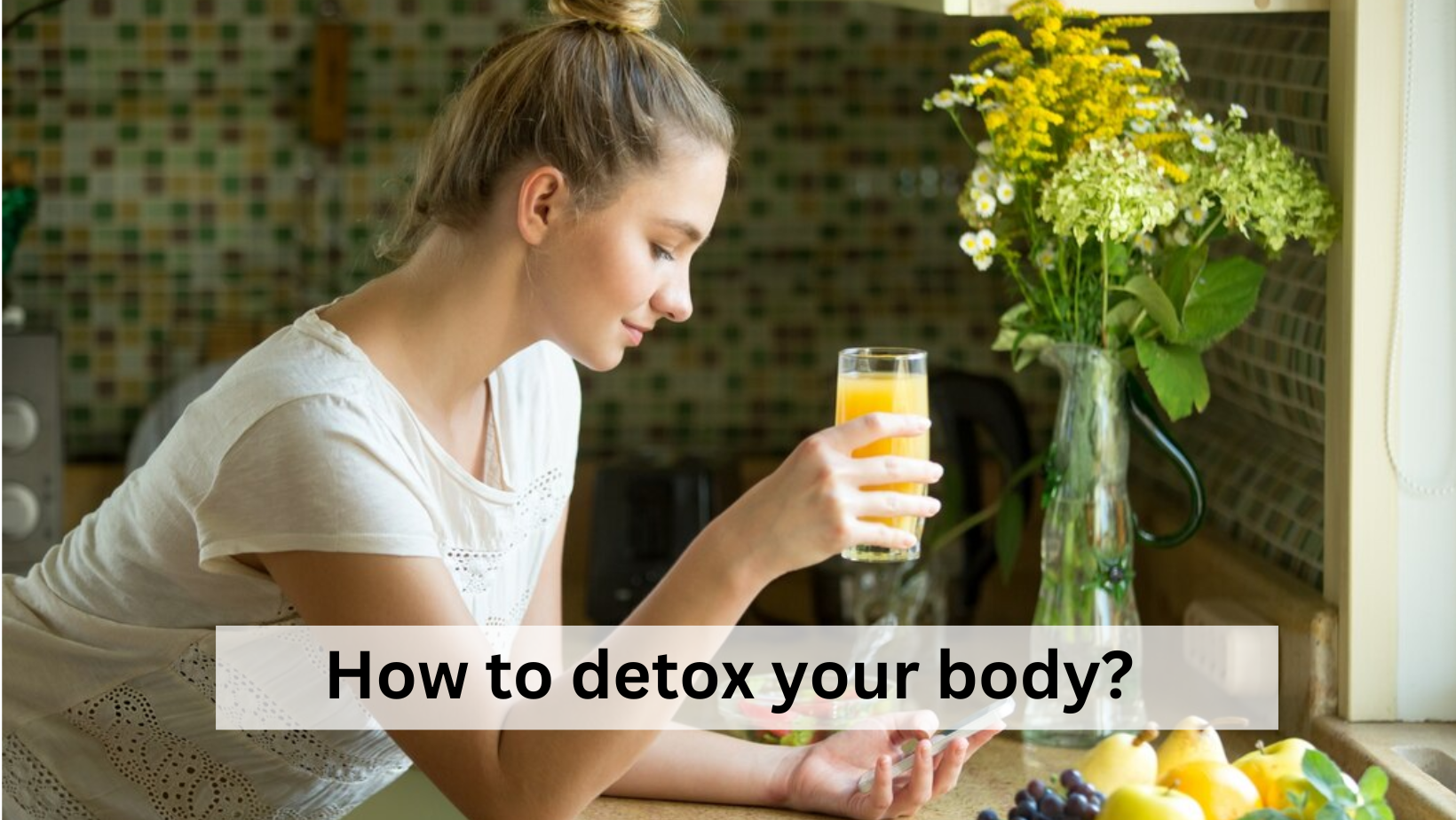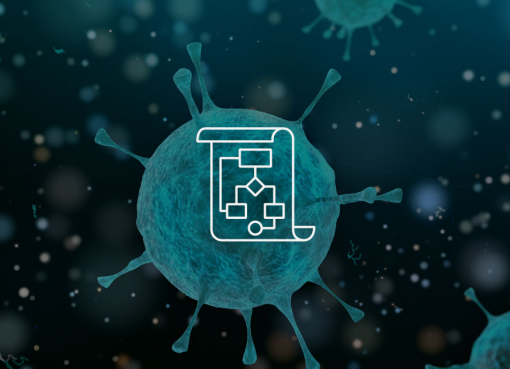Introduction to Detoxification
Detoxification, commonly referred to as detox, is the process of removing toxins and harmful substances from the body to promote overall health and well-being. It plays a crucial role in maintaining the body’s natural balance and supporting vital organs such as the liver, kidneys, and digestive system.
Importance of Detoxification:
Detoxification is essential for several reasons. Firstly, in today’s modern world, we are constantly exposed to environmental pollutants, chemicals, and toxins from various sources such as air pollution, processed foods, Junk food ordered from food delivery apps, and household products. These toxins can accumulate in the body over time, leading to adverse health effects and contributing to chronic diseases.
Moreover, poor dietary habits, stress, lack of physical activity, and other lifestyle factors can further burden the body’s detoxification systems, impairing its ability to function optimally. As a result, toxins may build up in the body, leading to symptoms such as fatigue, digestive issues, skin problems, and more serious health conditions.
Given the significant impact of toxins on health, detoxification plays a crucial role in supporting the body’s natural detox pathways and eliminating accumulated waste products. By facilitating the removal of toxins, detoxification helps to improve organ function, boost energy levels, enhance immune function, promote mental clarity, and support overall vitality.
In this guide, we will delve into various safe and effective methods for detoxing the body, including dietary changes, lifestyle modifications, herbal remedies, and holistic therapies. By adopting these strategies, individuals can support their body’s natural detoxification processes, eliminate toxins, and promote optimal health and well-being. Whether you’re looking to jumpstart a healthier lifestyle, address specific health concerns, or simply enhance your overall vitality, understanding the principles of detoxification and implementing targeted detox strategies can be a valuable investment in your health.
Common Toxins
Toxins are substances that can cause harm to the body, either by directly damaging cells or by interfering with normal physiological processes. They can be found in the air we breathe, the water we drink, and the food we eat. Environmental pollutants such as heavy metals, pesticides, and air pollutants are common sources of toxins that can accumulate in the body over time. Additionally, processed foods containing artificial additives, preservatives, and pesticides can introduce toxins into our bodies through consumption. Furthermore, metabolic waste products produced during normal cellular processes can also act as toxins if not efficiently eliminated from the body.
Natural Detoxification Processes:
Fortunately, our bodies are equipped with natural detoxification mechanisms to help eliminate toxins and maintain internal balance. The primary organs involved in detoxification include the liver, kidneys, skin, lungs, and lymphatic system. Each of these organs plays a vital role in filtering out toxins and waste products from the body.
- Liver: Often referred to as the body’s detox powerhouse, the liver is responsible for metabolizing and detoxifying harmful substances. It processes toxins and converts them into water-soluble compounds that can be excreted from the body through urine or bile.
- Kidneys: The kidneys filter waste products and toxins from the blood, producing urine to eliminate them from the body. They play a crucial role in maintaining electrolyte balance and regulating fluid levels.
- Skin: The skin serves as a barrier to prevent toxins from entering the body and also plays a role in eliminating toxins through sweat. Sweating helps to flush out toxins from the body and regulate body temperature.
- Lungs: The lungs act as a filter for airborne toxins, such as pollutants and allergens, trapping them in mucus and facilitating their removal through coughing and exhalation.
- Lymphatic System: The lymphatic system is a network of vessels and nodes that help remove toxins and waste products from the body. It transports lymph, a fluid containing white blood cells and waste materials, to lymph nodes where toxins are filtered out and destroyed.
By understanding the common toxins present in our environment and the body’s natural detoxification processes, we can take steps to support our body’s detoxification pathways and promote overall health and well-being.
Signs Your Body Needs a Detox
Over time, our bodies can become overwhelmed by exposure to toxins from various sources, leading to a buildup of harmful substances that can affect our health and well-being. Recognizing the signs that your body may need detoxification can help you take proactive steps to support your body’s natural detox processes and restore balance.
Common Signs of Toxin Overload:
- Fatigue: Feeling constantly tired or lacking energy can be a sign that your body is struggling to eliminate toxins efficiently. Toxins can interfere with cellular energy production and metabolism, leading to feelings of fatigue and lethargy.
- Digestive Issues: Digestive problems such as bloating, gas, constipation, or diarrhea can indicate a buildup of toxins in the gastrointestinal tract. Toxins can disrupt the balance of gut bacteria and impair digestive function, leading to digestive discomfort and irregularities.
- Skin Problems: Skin issues such as acne, eczema, rashes, or dull complexion may be a sign of toxin accumulation. The skin is one of the body’s primary detox organs, and when toxins overload the body, they can manifest as skin problems or inflammation.
- Brain Fog: Difficulty concentrating, memory problems, or feeling mentally foggy can be a result of toxin buildup in the body. Toxins can impair cognitive function and affect neurotransmitter balance, leading to brain fog and mental fatigue.
When to Consider a Detox:
Embarking on a detoxification program may be beneficial if you experience persistent symptoms of toxin overload or if you have been exposed to environmental toxins or unhealthy lifestyle habits. Some situations where a detox may be warranted include:
- After Periods of Excessive Stress: Stress can weaken the body’s detoxification pathways and increase susceptibility to toxin accumulation. After periods of high stress, such as busy work schedules or emotional turmoil, a detox can help reset the body and support overall health.
- Following Unhealthy Eating Habits: Consuming processed foods, sugary snacks, alcohol, or caffeine in excess can overload the body with toxins and disrupt normal detox processes. A detox can help cleanse the body and restore balance after periods of indulgence.
- To Support Weight Loss Efforts: Toxins stored in fat cells can hinder weight loss efforts and contribute to stubborn belly fat. A detox program focused on supporting liver function and eliminating toxins can aid in weight loss and promote a healthier metabolism.
- To Boost Overall Health and Vitality: Even if you don’t experience specific symptoms of toxin overload, periodic detoxification can help maintain optimal health and vitality. You can enhance energy levels, improve digestion, and promote overall well-being by supporting the body’s natural detoxification processes.
In conclusion, recognizing the signs of toxin overload and understanding when to consider a detoxification program can empower you to take control of your health and support your body’s natural detox processes. Whether you’re experiencing symptoms of toxin overload or simply want to promote overall health and vitality, a well-designed detox program can help you feel rejuvenated, energized, and ready to take on the world.
What are some Detoxification Methods?
Detoxification is a vital process for removing toxins from the body and restoring optimal health and vitality. While the body has its natural detoxification mechanisms, supporting these processes through various methods can enhance overall well-being and promote longevity. Here are some effective detoxification methods to consider:
1. Dietary Detox:
A balanced and nutritious diet plays a crucial role in supporting the body’s natural detoxification processes. Focus on consuming whole, nutrient-dense foods rich in antioxidants, vitamins, and minerals to support liver function and cellular detoxification. Include plenty of fresh fruits and vegetables, lean proteins, whole grains, apple cider vinegar and healthy fats in your diet. Avoid processed foods, sugary snacks, refined carbohydrates, alcohol, and caffeine, which can burden the liver and contribute to toxin accumulation.
2. Lifestyle Changes:
In addition to dietary modifications, certain lifestyle changes can further support detoxification efforts. Regular exercise helps stimulate circulation, promote sweating, and facilitate the elimination of toxins through the skin. Stay hydrated by drinking plenty of water throughout the day to flush out toxins and maintain proper hydration levels. Practice stress management techniques such as meditation, yoga, deep breathing exercises, or mindfulness to reduce stress hormones and support overall well-being. Prioritize adequate sleep to allow the body to repair and regenerate cells, crucial for optimal detoxification and overall health.
3. Natural Remedies:
Several natural remedies can aid in detoxification and support the body’s cleansing processes. Herbal supplements such as milk thistle, dandelion root, turmeric, and ginger can help support liver function and promote detoxification. Detox teas containing ingredients like green tea, dandelion, and licorice root may also assist in flushing out toxins and promoting digestive health. Essential oils such as lemon, peppermint, and grapefruit can be used aromatically or topically to support detoxification, boost energy levels, and promote mental clarity.
4. Detoxification Therapies:
Alternative detoxification therapies can complement dietary and lifestyle changes to enhance detoxification and promote overall well-being. Sauna therapy, which involves sweating out toxins through the skin, can help eliminate heavy metals, chemicals, and other toxins from the body. Hydrotherapy, including contrast showers, hot baths, or cold plunges, can stimulate circulation, promote detoxification, and support the immune system. Colon cleansing procedures, such as colon hydrotherapy or enemas, may help remove impacted waste and toxins from the colon, improving digestive health and overall well-being.
Incorporating these detoxification methods into your lifestyle can help support the body’s natural cleansing processes, enhance vitality, and promote long-term health and wellness. By adopting a holistic approach to detoxification that includes dietary modifications, lifestyle changes, natural remedies, and detoxification therapies, you can optimize your body’s ability to eliminate toxins and thrive in today’s toxic world.
How to Create a Detox Plan?
Embarking on a detox journey can be a transformative experience for both mind and body. To ensure a successful detoxification process, it’s essential to create a well-structured plan tailored to your individual needs and goals. Here’s how to get started:
1. Setting Clear Goals:
Begin by identifying specific detox goals and objectives based on your unique health concerns and desired outcomes. Whether you’re looking to boost energy levels, improve digestion, or kickstart weight loss, having clear goals will help guide your detox journey and keep you motivated along the way.
2. Planning Your Detox:
Develop a comprehensive detox plan that encompasses dietary changes, lifestyle modifications, and detox therapies. Start by assessing your current dietary habits and identifying areas for improvement. Consider incorporating more whole, nutrient-dense foods into your diet while eliminating processed foods, sugar, caffeine, and alcohol. Plan out your meals and snacks to ensure they are balanced and aligned with your detox goals.
In addition to dietary changes, explore lifestyle modifications that support detoxification, such as regular exercise, adequate hydration, stress management techniques, and quality sleep. Incorporate detox therapies that resonate with you, whether it’s incorporating herbal supplements, detox teas, essential oils, or alternative therapies like sauna sessions or hydrotherapy.
3. Establishing Support Systems:
Detoxing can be a challenging process, both physically and emotionally. It’s essential to build a support network of friends, family, or health professionals who can offer guidance, encouragement, and accountability throughout your detox journey. Share your goals and intentions with your support system, and consider enlisting the help of a detox coach, nutritionist, or wellness practitioner to provide expert advice and personalized guidance.
By setting clear goals, planning your detox effectively, and establishing support systems, you can embark on a successful detoxification journey that rejuvenates your body, refreshes your mind, and revitalizes your spirit. Remember that detoxing is not just about cleansing the body but also nourishing the soul, so approach the process with patience, self-compassion, and a commitment to holistic well-being.
Implementing Your Detox Plan
Embarking on a detox journey is an empowering step towards revitalizing your health and well-being. Here’s how to effectively implement your detox plan to achieve lasting results:
1. Getting Started:
Ease into your detox program gradually to allow your body to adjust to the changes. Start by incorporating small but meaningful shifts into your daily routine, such as swapping processed snacks for fresh fruits or adding a daily green smoothie to your breakfast. Focus on making sustainable lifestyle changes that align with your detox goals and preferences.
2. Staying on Track:
Detoxing can sometimes pose challenges, but staying motivated and consistent is key to success. Find strategies that work for you to overcome obstacles and stay on course. Whether it’s setting reminders on your phone, enlisting a detox buddy for accountability, or rewarding yourself for reaching milestones, find what keeps you motivated and inspired to stick to your plan.
Maintain consistency in your detox efforts by creating a daily routine that supports your goals. Schedule regular mealtimes, exercise sessions, relaxation breaks, and adequate sleep to ensure a balanced and holistic approach to detoxification. Remember that consistency is key to achieving long-term results, so stay committed to your journey even when faced with challenges.
3. Monitoring Progress:
Track your detox journey closely to monitor your progress and make necessary adjustments along the way. Keep a journal to record the physical, mental, and emotional changes you experience throughout the detox process. Pay attention to how your body feels, noting any improvements in energy levels, digestion, mood, and overall well-being.
Regularly reassess your detox plan to ensure it remains aligned with your evolving needs and goals. Be flexible and open to making adjustments as needed based on your progress and feedback from your body. Celebrate your achievements and milestones along the way, no matter how small, and use them as motivation to continue moving forward on your detox journey.
By getting started gradually, staying on track with consistency and motivation, and monitoring your progress closely, you can effectively implement your detox plan and experience the transformative benefits of a rejuvenated body, mind, and spirit. Remember that your detox journey is unique to you, so trust your intuition, listen to your body, and enjoy the process of self-discovery and renewal.
Post-Detox Maintenance
Congratulations on completing your detox journey! Now that you’ve revitalized your body and mind, it’s essential to transition out of the detox phase smoothly and maintain the benefits you’ve gained. Here’s how to ensure a successful post-detox maintenance period:
1. Transitioning Out of the Detox:
Gradually reintroduce foods and habits that were restricted during the detox phase to avoid overwhelming your system. Start by incorporating small portions of previously eliminated foods back into your diet, focusing on whole, nutrient-dense options. Pay attention to how your body responds to these reintroductions and adjust your diet accordingly. Continue to prioritize hydration, regular exercise, and stress management techniques to support your body’s natural detoxification processes.
2. Establishing Long-Term Health Habits:
Use the momentum from your detox experience to establish long-term health habits that promote overall well-being. Embrace a balanced and varied diet rich in fruits, vegetables, lean proteins, and whole grains to provide essential nutrients and support optimal health. Incorporate regular physical activity into your routine to promote circulation, improve metabolism, and enhance detoxification. Practice stress reduction techniques such as meditation, yoga, or deep breathing exercises to maintain mental and emotional equilibrium.
To prevent toxin buildup in the future, focus on creating a healthy living environment by reducing exposure to environmental toxins, including pollutants, chemicals, and allergens. Opt for natural cleaning products, air purifiers, and organic personal care items to minimize toxin exposure in your home. Prioritize quality sleep, adequate hydration, and regular relaxation to support your body’s detoxification efforts and maintain optimal health over the long term.
3. Seeking Professional Guidance:
Know when to seek guidance from a healthcare professional or qualified nutritionist for personalized detoxification advice and support. If you have specific health concerns or medical conditions, consult with a healthcare provider before starting any detox program to ensure it’s safe and appropriate for your individual needs. A healthcare professional can offer valuable insights, guidance, and resources to help you navigate the post-detox period and maintain your newfound health and vitality.
By transitioning out of the detox phase gradually, establishing long-term health habits, and seeking professional guidance when needed, you can effectively maintain the benefits of your detox journey and continue to thrive in your pursuit of optimal health and wellness. Remember that post-detox maintenance is an ongoing process that requires commitment, consistency, and self-care, so stay dedicated to nurturing your body, mind, and spirit for lasting vitality and well-being.
Wrap Up
Detoxifying your body is an essential step towards achieving optimal health and well-being. By understanding the signs of toxin overload, implementing safe and effective detoxification methods, and creating a personalized detox plan, you can support your body’s natural cleansing processes and promote vitality from within. Remember to listen to your body, stay consistent with your detox efforts, and seek professional guidance when needed. With dedication and commitment, you can embark on a journey toward renewed energy, vitality, and overall wellness.
FAQs:
- How often should I detox my body?
- The frequency of detoxification depends on individual health needs and lifestyle factors. While some people may benefit from periodic detox programs, others may find it helpful to incorporate daily detox habits into their routine. Listen to your body and consult with a healthcare professional for personalized guidance.
- Are detox diets safe for everyone?
- Detox diets can be safe and effective when done properly and under the guidance of a healthcare professional. However, they may not be suitable for everyone, especially those with underlying health conditions or specific dietary restrictions. It’s essential to approach detox diets with caution and tailor them to individual needs.
- What are the potential side effects of detoxing?
- While detoxification can bring about positive changes, some people may experience temporary side effects such as fatigue, headaches, digestive disturbances, or changes in mood during the detox process. These symptoms are often a sign that the body is releasing toxins and adjusting to dietary and lifestyle changes. However, if you experience severe or prolonged side effects, it’s important to seek medical attention.
- How Does Automated Scheduling Save Time and Boost Engagement? - April 16, 2025
- 21 Delicious High Protein Foods - May 31, 2024
- Black Seed Oil: Health and Beauty Benefits - May 30, 2024




